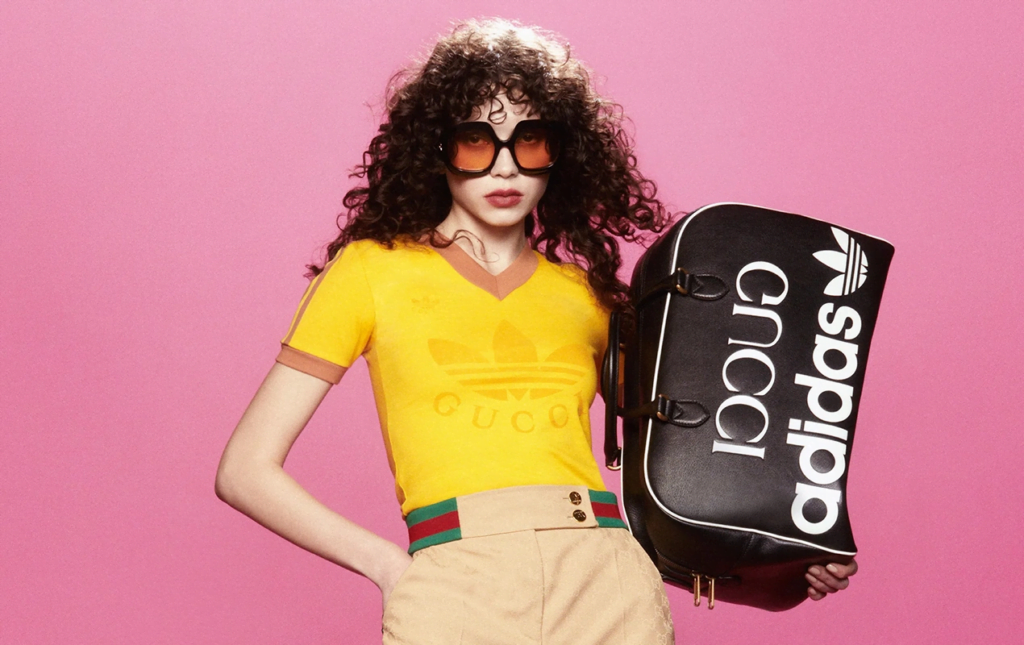
The fashion industry is ever-evolving, and marketing strategies play a crucial role in driving brand awareness, engagement, and sales. To stay ahead in the competitive landscape, fashion brands need to adapt to the emerging marketing trends that are shaping the industry. In this article, we will explore the top 15 trends that are revolutionizing fashion marketing.
Introduction
In today’s digital age, fashion brands must leverage innovative marketing approaches to captivate their target audience and stand out from the competition. Let’s delve into the emerging marketing trends in the fashion industry and discover how they can help brands thrive in this dynamic market.
Trend 1: Influencer Marketing

Influencer marketing has become an integral part of fashion marketing strategies. Collaborating with social media influencers allows brands to reach a wider audience, build credibility, and generate authentic content. Influencers with a strong online presence can effectively promote products and inspire their followers to make purchasing decisions.
Trend 2: Social Media Advertising

Social media platforms provide an excellent opportunity for fashion brands to connect with their target audience. Advertising on platforms like Instagram and Facebook enables precise targeting, allowing brands to showcase their products to relevant users. With engaging visuals and compelling ad copy, social media advertising can drive brand awareness and direct traffic to online stores.
Trend 3: Personalization and Customization

Personalization is a key driver of customer satisfaction and loyalty. Fashion brands are leveraging data analytics and customer insights to offer personalized shopping experiences. From personalized product recommendations to tailored email marketing campaigns, customization helps brands connect with customers on a deeper level and enhance their shopping journey.
Trend 4: Sustainability and Ethical Fashion

Consumers are increasingly conscious of sustainability and ethical practices in the fashion industry. Brands that embrace sustainable and ethical initiatives are gaining popularity among eco-conscious consumers. From using organic materials to implementing fair trade practices, fashion brands can attract a socially responsible audience and make a positive impact on the planet.
Trend 5: Augmented Reality in Retail

Augmented Reality (AR) technology is revolutionizing the way consumers shop for fashion products. By enabling virtual try-on experiences, AR enhances customer engagement and reduces purchase hesitations. Fashion brands can leverage AR to provide a more immersive and interactive shopping experience, ultimately driving conversions and reducing returns.
Trend 6: Video Marketing

Video content has become a powerful marketing tool in the fashion industry. Brands are creating captivating video campaigns to tell their brand stories, showcase products, and engage with their audience. From fashion lookbooks to behind-the-scenes footage, videos help create an emotional connection with customers and increase brand loyalty.
Trend 7: Voice Search Optimization

As voice assistants like Siri and Alexa gain popularity, optimizing for voice search has become essential for fashion brands. Voice search optimization involves tailoring website content and product descriptions to align with natural language queries. By embracing voice search, fashion brands by embracing voice search, fashion brands can ensure their products and content are easily discoverable by users who rely on voice commands. Optimizing for voice search improves the overall user experience and increases the chances of appearing in voice search results.
Trend 8: Mobile Shopping

With the increasing use of smartphones, mobile shopping has become a dominant trend in the fashion industry. Brands need to optimize their websites and online stores for mobile devices, ensuring a seamless and user-friendly experience. Mobile-responsive designs, easy navigation, and fast loading speeds are crucial for attracting and retaining mobile shoppers.
Trend 9: User-Generated Content
User-generated content (UGC) has gained significant traction in fashion marketing. Brands encourage their customers to create and share content featuring their products, such as outfit photos or reviews. UGC not only builds a sense of community but also serves as authentic social proof, influencing potential customers’ purchasing decisions.
Trend 10: Artificial Intelligence in Fashion

Artificial Intelligence (AI) is transforming the fashion industry by enabling personalized recommendations, virtual stylists, and chatbots for customer support. AI algorithms analyze customer data and behavior to provide tailored product suggestions, enhancing the shopping experience and increasing conversions. Chatbots offer 24/7 assistance, answering customer queries and providing real-time support.
Trend 11: Collaborations and Partnerships

Collaborations between fashion brands and influencers, celebrities, or other brands have become a popular marketing strategy. By partnering with relevant entities, brands can tap into new audiences, increase brand exposure, and create buzz around their products. Collaborations can take the form of limited-edition collections, co-branded campaigns, or joint events.
Trend 12: Niche Marketing
Rather than targeting a broad audience, fashion brands are increasingly focusing on niche markets. By identifying specific consumer segments with unique preferences and interests, brands can tailor their marketing efforts and develop targeted campaigns. Niche marketing allows brands to connect deeply with their target audience, leading to higher engagement and customer loyalty.
Trend 13: Virtual Events and Live Streaming

The fashion industry has embraced virtual events and live streaming as a response to the pandemic and shifting consumer behavior. Fashion shows, product launches, and behind-the-scenes content are now accessible to a global audience through online platforms. Virtual events not only provide convenience but also create opportunities for interactivity and engagement with customers.
Trend 14: Data-driven Marketing
Data analytics and insights play a crucial role in fashion marketing. Brands collect and analyze customer data to gain valuable insights into their preferences, purchasing behavior, and demographics. By leveraging data, brands can create targeted marketing campaigns, improve product offerings, and enhance the overall customer experience.
Trend 15: Influencer Collaborations and Affiliates
In addition to influencer marketing, fashion brands are leveraging influencer collaborations and affiliate programs. Collaborations involve deeper partnerships with influencers, where they co-create products or act as brand ambassadors. Affiliate programs allow influencers and content creators to earn commissions by promoting a brand’s products, driving sales, and increasing brand exposure.
Conclusion
The fashion industry is witnessing a rapid evolution in marketing strategies, driven by technological advancements and changing consumer expectations. By embracing emerging marketing trends such as influencer marketing, social media advertising, personalization, sustainability, and AI, fashion brands can stay relevant and effectively engage their target audience. It’s essential for brands to stay proactive and adapt to these trends to thrive in a competitive market.
Get to know the Power of Storytelling in Fashion Marketing by clicking here.